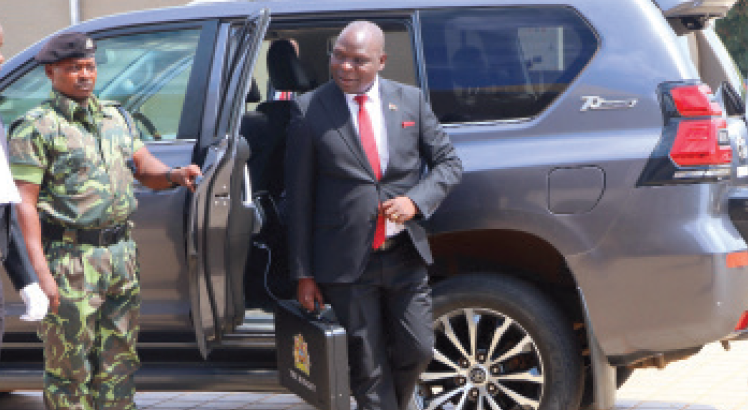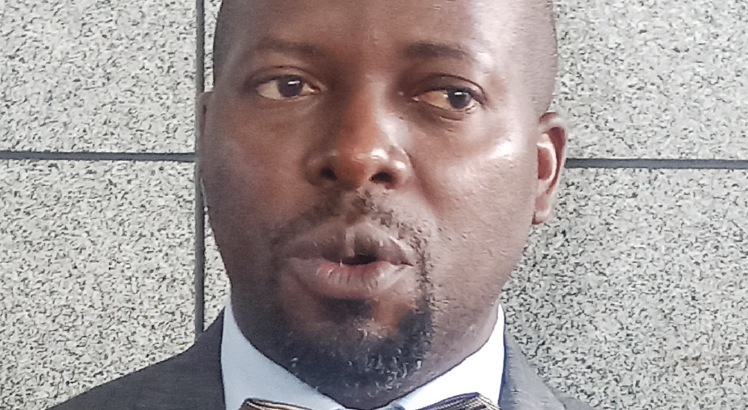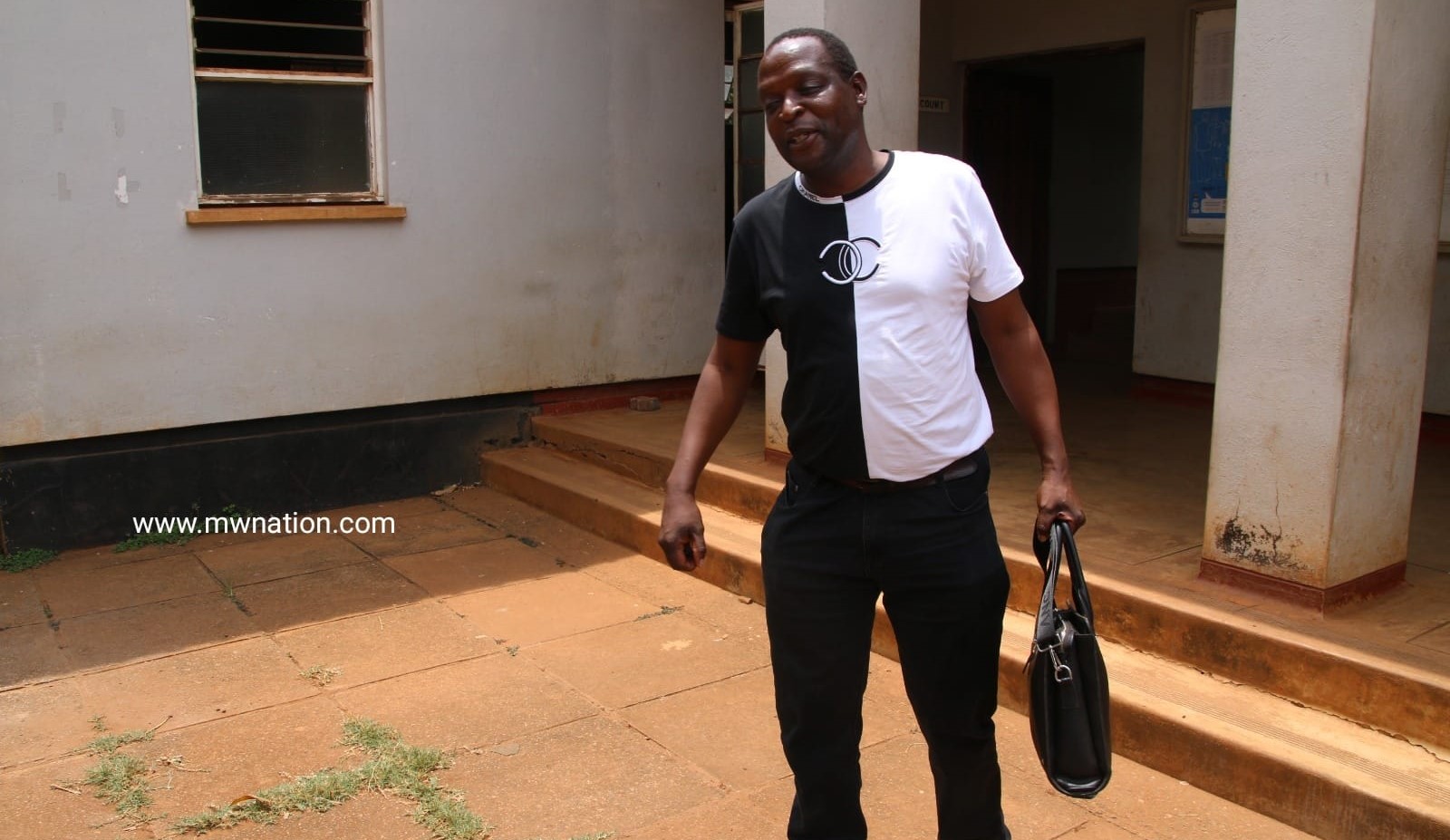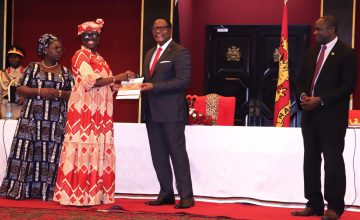Chithyola presents strong dev budget
The nearly K6 trillion budget that Finance and Economic Affairs Minister Simplex Chithyola-Banda tabled yesterday could be the most capital intensive in recent memory, but tight fiscal space will likely be its biggest adversary during execution.
Chithyola-Banda’s maiden 2024/25 budget, built on the assumption that the economy will grow by 3.6 percent and inflation moderating to 23.4 percent from the current 35 percent, expects K4.55 trillion in revenue.
The projected rise in revenue may be 49 percent higher than in 2023/24, but galloping spending pressures amid unsustainable debt burdens leaves little room in the resource envelope to manoeuvre, especially in an election year when outlays historically rise sharply.
Recurrent expenditures are projected at K4.21 trillion, representing 22.5 percent of gross domestic product (GDP) and 70.4 percent of total expenditure.
The minister boldly adjusted development expenditures by 63 percent from K1.08 trillion in the 2023/24 financial year to K1.77 trillion in the current fiscal plan although pressure to increase existing construction contract prices following the 44 percent kwacha devaluation may also have spurred the jump.

Nevertheless, the increase in capital spending represents about 30 percent of total expenditures, which stand at K5.98 trillion or 9.55 percent of GDP—a 2.5 percentage points surge from 7.05 percent.
Said Chithyola-Banda: “The proportion of development expenditure, which is our investment, now stands at 30 percent from 24 percent in the 2023/24 financial cycle. For the first time in our history, we have allocated 30 percent to production. This is a development budget because we are focusing on investment.”
President Lazarus Chakwera’s Tonse Alliance administration plans to invest heavily in the construction sector, which it has identified as one of the major sources of growth for this year and in 2025 in the context of its ATM strategy that prioritizes agriculture, tourism and mining.
Projects include rehabilitation of 16 roads across the country, the development of an integrated resort at Cape Maclear in Mangochi and Salima, public beaches along Lake Malawi and other investments in agriculture and mining sectors.
However, the government will contribute a paltry K383.6 billion or 22 percent of the total development budget, leaving the donors to carry the burden of financing Malawi’s development with a K1.37 trillion contribution or 78 percent of the total capital spending.
The National Planning Commission (NPC) has since said the new budget has laid a strong foundation for wealth creation, job scale-up and economic growth.

NPC director general Thomas Munthali, whose organisation is the key implementer of the Malawi 2063, yesterday commended the administration for designing a budget that signals Malawi’s intent to be an inclusively wealthy and independent nation, but cautioned that the dependence on donor support is unsustainable.
He urged government to focus on a few impactful catalytic projects which can be finished on time with resources that are readily available instead of implementing multiple projects at the same time.
Said Munthali: “For example, while roads are an important enabler for productivity, having too many of them initiated simultaneously could worsen debt levels as costs could escalate because they take too long to complete.”
Agreeing with Munthali, Economics Association of Malawi acting president Bertha Bangara-Chikadza expressed concern that the dependence on donor support will leave the government “vulnerable if the donors do not honour their pledges”.
Risks to the budget
Aside from the perceived donor dependence, Chithyola-Banda’s fiscal plan is also expected to experience pressures from unstable macroeconomic conditions as the country braces for widespread crop failure amid drought, especially in the Southern Region, and limited fiscal space.
The budget could also start on a weak foundation because the macroeconomic fundamentals on which it is based are more optimistic than projections from financial institutions such as the Reserve Bank of Malawi, International Monetary Fund and World Bank.
These GDP projections could have a serious bearing on revenue and government’s ability to spend as planned.
According to the estimates presented by theminister, recurrent expenditures, which are estimated at K4.21 trillion will take up at least 92 percent of total revenues, which are projected at K4.55 trillion. The recurrent expenditures are also marginally higher than domestic revenues, which were projected at K3.38 trillion.
The mismatch between the expenditures and revenue will lead to a projected deficit or fiscal balance of K1.43 trillion, representing 7.6 percent of GDP and 23.91 percent of total expenditures.
As a percentage of total expenditures, the deficit will drop by 5.65 percentage points from 29.56 percent to 23.91 percent.
Chithyola-Banda said the deficit will be financed by borrowing K1.28 trillion from the domestic market (about six percent of GDP) and K150 billion from external financing.
For a country that is already groaning under total public debt of nearly K13 trillion or around 84.8 percent of GDP, the deficit financing plan can only shrink fiscal space further, especially in the absence of a sound debt-restructuring plan that major creditors can agree to.





